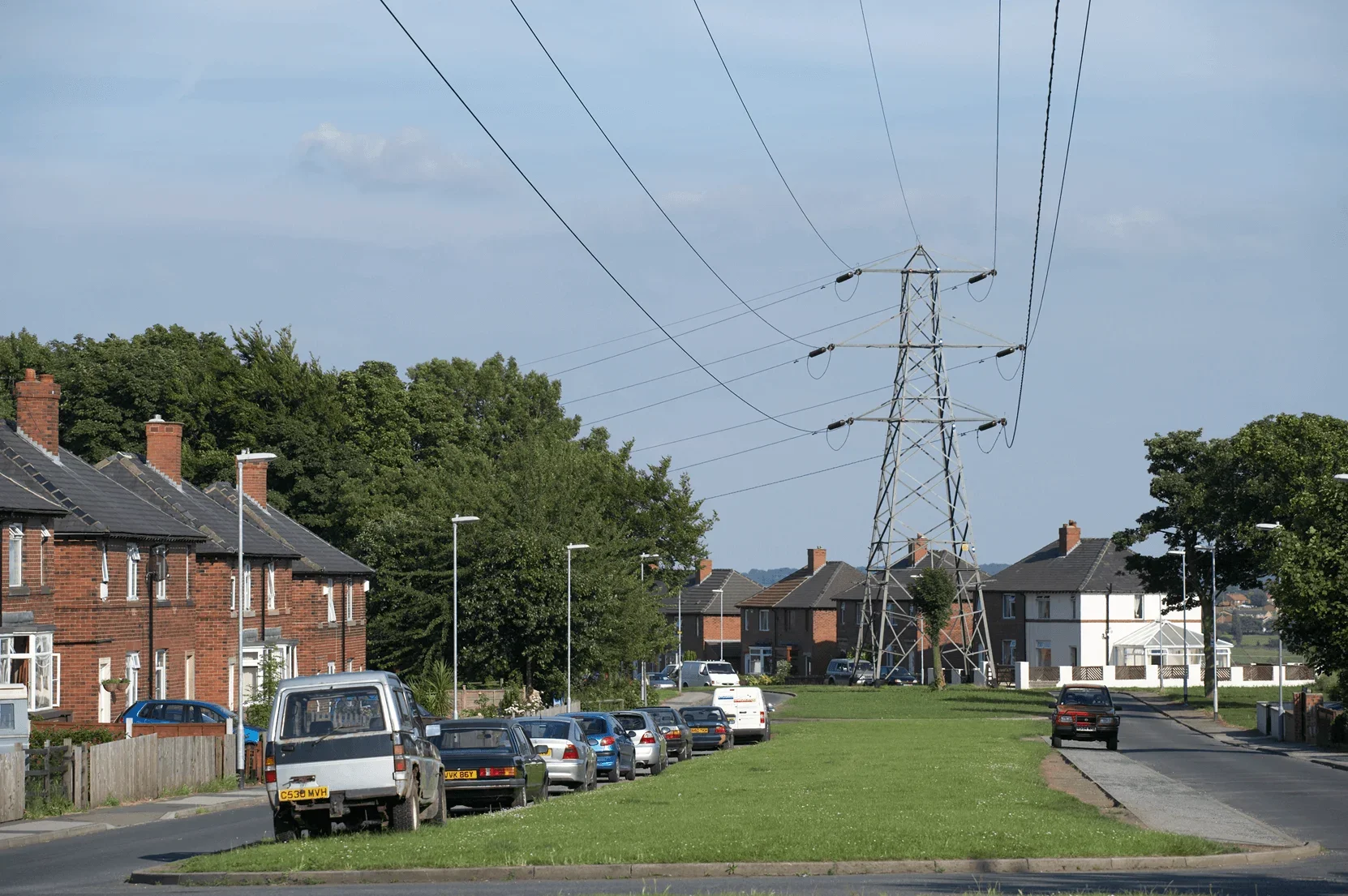BUSINESS ENERGY
What is a letter of authority (LoA) for business energy?
Read time: 5 minutes
By Les Roberts, Business Energy Expert
16th June, 2025
If you run a business, you’ll know that sorting your energy contract renewal is often one more time-consuming task you don’t need on your plate. That’s why many businesses choose to work with a business energy broker or consultant when switching suppliers, negotiating rates, or managing their energy contracts.
But before a broker can do any of that on your behalf, they need you to sign a letter of authority — or LoA for short. It’s a simple document, but it carries a lot of weight. Without one, your broker or consultant won’t legally be allowed to act on your behalf or access your energy information.
In this guide, we’ll break down exactly what a letter of authority is, why it’s needed, what it covers, and how to make sure you’re using it safely. If you’re a business owner or energy decision-maker, understanding how LoAs work can help you stay in control while making the most of expert help.
What is a letter of authority?
A letter of authority is a legal document that gives a third party permission to act on your behalf in certain areas related to your business energy account. In simple terms, it’s your written authorisation allowing someone else — typically an energy broker, consultant, or procurement specialist — to handle specific tasks that would otherwise need your direct involvement.
The scope of an LoA can vary depending on what you want your broker or consultant to do. Some letters allow the third party to request information, such as your energy usage history or current contract details. Others may authorise them to negotiate contracts, request quotes from suppliers, or even sign new contracts on your behalf.
While the document itself may only be a few paragraphs long, the powers it grants can be significant, which is why it’s so important to fully understand what you’re signing.
Why do brokers and consultants need a letter of authority?
In the UK, energy suppliers and distribution network operators are required to protect the privacy and security of customer data. A letter of authority allows brokers to access your energy usage details, contract terms, or billing information.
By signing an LoA, you give your broker the legal right to approach suppliers, access your account information, and handle negotiations on your behalf. Without an LoA, suppliers simply won’t speak to anyone other than you or someone officially named on the account.
An LoA essentially unlocks the door, allowing your broker to do the heavy lifting while you remain the decision-maker. It streamlines the process of comparing quotes, checking contract end dates, avoiding out-of-contract rates, and ensuring your business gets the most competitive deal available.
What can a letter of authority be used for?
The exact powers granted in a letter of authority depend on its wording. That’s why LoAs often come in different levels or types, based on how much authority you want to give.
Some of the most common permissions an LoA may grant include:
- Accessing your consumption data and usage history
- Requesting contract information and renewal dates from your current supplier
- Obtaining quotes from alternative suppliers
- Negotiating prices and terms for new contracts
- Managing the switching process on your behalf
- Handling billing queries or disputes
- In some cases, signing contracts on your behalf (though this should only be granted with caution)
It’s entirely up to your business to decide how much authority you want to give. Many businesses prefer to limit LoAs to information-only access in the early stages of a relationship with a broker, before potentially granting wider powers once trust has been established.
Is a letter of authority a legal requirement?
A letter of authority isn’t legally required by the government, but it’s a legal requirement set by suppliers and network operators under data protection and privacy laws. Without one, they can't release your private business energy information to a third party, even if you verbally give permission.
The energy industry takes customer data protection seriously — and rightly so. A valid LoA gives suppliers confidence that they are dealing with someone who has your explicit permission to access your data and act on your behalf.
It’s also worth noting that many brokers and consultants won’t begin working with you until an LoA is in place. It gives them the ability to fully research the market, gather accurate information, and find the most appropriate suppliers and contract types tailored to your business.
What should be included in a letter of authority?
While there’s no single standard template for a letter of authority, there are certain details that every valid LoA should include. These help ensure that suppliers, brokers, and your own business all understand the scope and duration of the authorisation.
Key elements typically include:
- Your business name, registered address and company number
- The name of your appointed broker or consultant
- A clear statement outlining what permissions are being granted
- The duration or expiry date of the authorisation
- The signatures of authorised company representatives
- The date of signing
Many brokers will provide their own LoA template for you to review and sign. Before doing so, it’s always worth carefully reading the document to ensure you’re happy with what you’re agreeing to.
It's also worth noting that you may not need to sign and return a paper contract. To speed up processes, an LoA can be signed digitally, using a service like DocuSign. If this is the case, bear in mind that the signature on the digital document may not match your actual signature (a handwriting style typeface is often used).
This is why it's important to remember what you signed, when you signed it, and why you signed it.
How long does a letter of authority last?
The duration of a letter of authority depends on what you agree with your broker or consultant. Some LoAs are valid for a specific contract period, while others may last for 12 or 24 months or stay valid until you revoke them.
It’s important to note that you retain the right to withdraw your authorisation at any time. If you’re no longer comfortable with your broker’s involvement or want to switch providers, you can cancel the LoA by providing written notice.
In most cases, suppliers will stop dealing with the third party as soon as they receive confirmation that the LoA has been withdrawn.
How to protect your business when signing a letter of authority
There are several simple steps you can take to make sure your LoA protects your interests rather than exposes you to unnecessary risk:
- Read the document carefully before signing, and ask for clarification on anything you don’t understand
- Specify exactly which powers you are granting — and which you are not
- Set a clear time limit for how long the LoA remains valid
- Only work with brokers who are reputable, experienced, and transparent about their fees and commissions
- Keep copies of all signed documents for your records
Remember that signing an LoA does not mean you are handing over full control of your energy procurement. You remain the decision-maker and can revoke authorisation if needed.
Do you need a new letter of authority for each supplier?
Generally, a single letter of authority gives your broker permission to interact with multiple suppliers during their market search. You don’t usually need a separate LoA for each supplier being approached.
However, if you decide to change brokers or work with multiple consultants, each new broker would require a separate letter of authority from you. Suppliers will only recognise authorisations from the brokers named in the LoA.
Some suppliers may also need an updated or renewed LoA if your previous one has expired, or if there have been changes to your business name or legal structure.
What happens after a letter of authority is submitted?
Once you’ve signed a letter of authority, your broker can immediately start acting on your behalf. Because the letter is valid from the date you sign it, there’s no waiting around — your broker can contact suppliers, gather quotes, and search for better deals on your business electricity, business gas or both. It takes the hassle off your hands and makes switching simple, giving you peace of mind while they do the legwork.
Final tips before you switch
Always choose a broker you trust. Make sure you understand the letter of authority before signing it, and if they don't explain how they earn commission and how much they'll earn from your contract, ask them to find out. Be cautious about handing over personal details unless you’re sure who you’re dealing with.
If you’re ready to switch with business energy experts that are trusted by 200,000 UK businesses and counting, call 0800 140 4667 or give us your postcode to start a business energy price comparison.
Is it time to compare business energy quotes and switch?
Take the hassle out of sorting your next energy deal. We compare from a panel of suppliers. You choose the rates that are right for your business.
By clicking ‘COMPARE TODAYS RATES’ you agree for us to search your current energy supplier and usage though industry held data. Enter manually
Our experts share essential knowledge on business energy
All related guides
View all energy guides
- A complete guide to business energy for offices
- A complete guide to business energy for restaurants
- A complete guide to business energy for shops
- Average business energy consumption - How much does your business use?
- How to get a business energy audit to save money and boost efficiency
- A complete guide to business energy bills
- Business energy brokers – everything you need to know
- What are no standing charge business energy tariffs?
- Business energy efficiency: how to save energy at your business
- Change of Tenancy - Moving business premises and your energy contract
- Commercial property landlord energy advice
- Energy performance certificate for business
- A complete guide to half hourly electricity meters
- How does the energy market affect the cost of your energy bills?
- How switching to energy efficient lighting can save your business money
- How to pay your business energy bills to save money and avoid late fees
- How your business credit score affects your energy deals
- Compare large and industrial business energy prices
- Prepayment meters for business: The complete 2025 guide for SMEs
- What are renewable energy certificates and REGOs for small businesses?
- Renewable Energy for Business
- Business Smart Meters: Your Guide to Savings, Installation, and Supplier Comparison
- Commercial solar panel electricity
- The nuclear RAB levy explained: what it means for your business
- A business guide to time-of-use energy tariffs
- Business energy tariffs explained
- Everything you need to know about the Smart Export Guarantee (SEG)
- Compare small business & micro business energy prices
- Compare the cheapest business energy suppliers
- What is the Climate Change Levy?
- Business energy meter installation: Your complete guide
- Multi-site meters and business energy management
- How much is VAT on business energy?
- What happens when your energy supplier goes bust?
- What is a letter of authority (LoA) for business energy?
- What is Market-wide Half-Hourly Settlement (MHHS) and how does it work?
- What is business microgeneration?
How to switch business energy suppliers with MoneySuperMarket
We can switch your business to a better energy deal in three simple steps
1
We find your details
Just enter your business address and we'll use industry data to accurately find and understand your energy usage.
2
We talk through your quotes
One of our UK-based energy experts will search our supplier panel and give you a call to talk through your quotes.
3
You choose the deal you want
With all the information to hand, you choose the deal that best suits your business and we’ll handle the switch for you.
Compare today’s business energy rates
By clicking ‘COMPARE TODAY'S RATES’ you agree for us to search your current energy supplier and usage though industry held data. Enter manually







